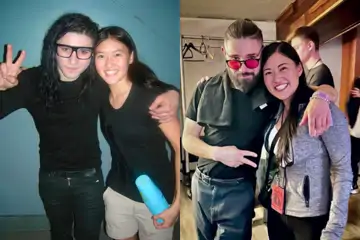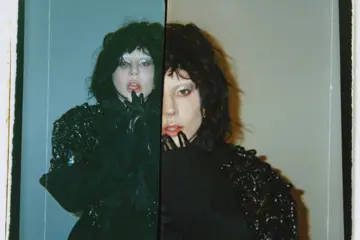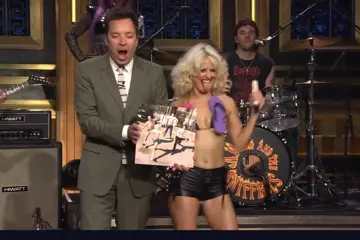He's different. He's too young to really know why, and the kids who tease and mock and hurt him for being different are probably too young to know why as well. But they do it anyway, using words like weak and soft and other terms even crueler. And while some people, older and wiser, offer guidance and compassion and support, it may not be enough to stem the pain or the confusion he feels.
He grows older. And while he comes to know things about himself, many around him regard him — if they notice him at all — with disdain or contempt. Or worst of all, with affection that is soon withdrawn, replaced by betrayal. And by the time he becomes a man, he has armoured himself against all feelings of vulnerability, shunning any form of intimacy.
It's a story that many people can relate to and empathise with, regardless of race, gender or sexual orientation. But what Barry Jenkins' film Moonlight does so beautifully is balance the universal aspects of its story with something deliberately specific. It's an intensely personal story that is nevertheless incredibly relatable. In telling the story of Chiron, a young, gay, African-American man, at three pivotal stages in his life (his childhood, his adolescence and his 20s), Jenkins knew in adapting playwright Tarell Alvin McCraney's work In Moonlight Black Boys Look Blue that he had the opportunity to bring to the screen a depiction of manhood and masculinity — black masculinity in particular — that had rarely been seen.
Jenkins is not a fan of the term 'representation', but he was aware of an inherent responsibility that accompanied the making of Moonlight. Still, he didn't want to sacrifice the authenticity of Chiron's story — all too familiar to both himself and McCraney — in favour of making a statement. It was a tricky balancing act for the filmmaker. "Here's the thing," says Jenkins. "I can't deny there are certain characters who aren't represented in arts and letters very much at all. And because of that lack of representation, when those characters do appear, when they're centred in a narrative, it takes on added importance. It's almost a political act. And because of that, I felt like we had to get it right.
"Myself and Tarell fused with Chiron and that really improved the work."
"This idea of vulnerability, about whether or not men who look a certain way can actually be vulnerable, actually be sensitive towards one another, was going to have an absolute charge because of the lack of these depictions. And that it was also a reflection of the world Tarell and I grew up in — despite the fact that we didn't see these things very often in arts and letters, we saw them all the time growing up. So, it's about telling the truth and presenting these people as human beings."
Jenkins and McCraney didn't meet until Jenkins expressed interest in adapting In Moonlight Black Boys Look Blue into a film, but the two shared a common background. They grew up blocks from one another in the hardscrabble Miami neighbourhood of Liberty City and attended the same schools for a time. And the mothers of both men wrestled with drug addiction, a subject unflinchingly covered in Moonlight. "There was an initial moment, and to be brutally honest I probably recoiled from that," says Jenkins when asked if he recognised parts of his life in McCraney's play. "In my initial read, I appreciated it and thought there was something very potent in it. And right before reading it I had thought I should write something about my life, about my life with my mom, and then I thought 'Nah, that's too personal'. Then I read this piece and it was so close — 'Oh, shit, maybe this is too personal as well!' Then this process happened where I convinced myself that it wasn't the case. This is his story, so this is the perfect scenario. It's not personal at all because I'm dealing with this guy's shit! And, of course, over the course of two and a half, three years of this journey it became intensely personal. Myself and Tarell fused with Chiron and that really improved the work."
Chiron's sexuality is a key part of his identity, and Jenkins (who identifies as straight) was keen to explore how the character's own feelings about who he is shape him as he matures. But addressing larger questions of identity was equally important for the filmmaker. "We all struggle to self-identify, and young men really struggle to self-identify. Whether that's sexuality or whether you're a jock or a nerd or a drama student, there are all these different aspects to identity and we struggle to define them to ourselves because the world is often giving us so much feedback.
"The world is always giving us updates — don't walk like this, don't talk like that, don't [look] at a man in this way, only that way. And it was really important to me that people understand that these young men, and particularly young men from the world I grew up in, end up a certain way not because of human nature but because society reinforces certain behaviour that allows you to survive. Other behaviour such as vulnerability is viewed as weakness, and weakness is vanquished."
It's something that has clearly resonated with those who have seen Moonlight — the film is one of the year's most acclaimed, scoring eight Academy Award nominations (including Best Picture and Best Director for Jenkins). What's more, admirers of the film are comparing it to seminal works like Ralph Ellison's novel Invisible Man and the books of author James Baldwin.
Jenkins is obviously flattered and stoked by such comparisons but he's keeping his cool.
"I was there on the set for the 25-day shoot, and it was not an extravagant process by any means," he smiles. "But I remember being proud of the work we were doing and I kind of just leave it at that. And if I accept what someone says in a positive way, if someone then says it's absolute shit, there's nothing to say that that's invalid. I just try to hold on to the feeling of making the film and the pride I felt in the process. But Ralph Ellison is a legend. James Baldwin is a legend. And to make something that is even in the same conversation is wonderful but as someone who has a voice because of them I know I have a long way to go before I'm in the same league. I will say this, though: there are kids who don't know who James Baldwin is — but they will — and if they see Moonlight and they feel the same way about it that I felt about Baldwin's The Fire Next Time or Giovanni's Room... oh, man, that is the greatest compliment in the world."















